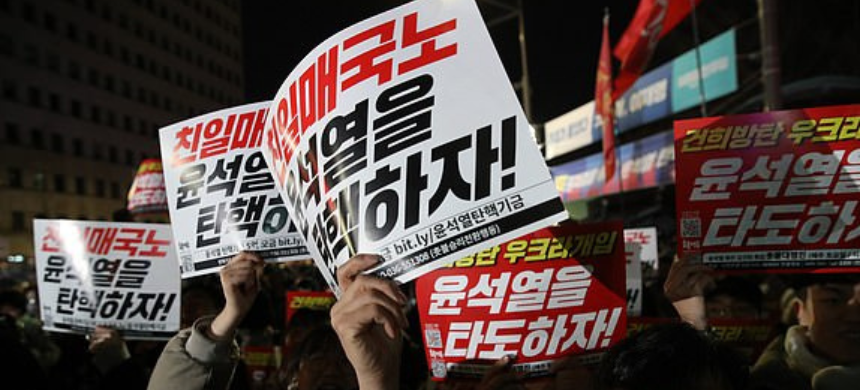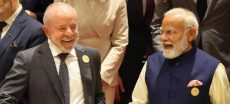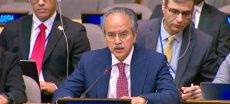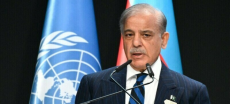South Korean lawmakers have initiated impeachment proceedings against President Yoon Suk Yeol following his controversial declaration of martial law, a move he reversed under intense parliamentary and public pressure. The declaration, which military forces enforced by storming the National Assembly, has sparked one of the most significant political crises in South Korea’s recent history.
The Crisis Unfolds
Late on Tuesday, President Yoon declared martial law, citing threats from North Korea and alleged anti-state forces. In a televised address, he argued the measure was necessary to “protect the nation’s constitutional order.” However, the declaration led to immediate outrage, with military forces clashing with parliamentary staff and protesters at the National Assembly building.
Lawmakers, including members of Yoon’s own People Power Party (PPP), swiftly convened and voted unanimously to nullify the martial law order, forcing the president to rescind it within hours.
Push for Impeachment
Opposition lawmakers, led by Hwang Un-ha, are moving quickly to table an impeachment bill. If passed by two-thirds of the 300-member legislature, the bill would lead to a trial in the Constitutional Court. Hwang emphasized the urgency, stating, “The parliament should focus on immediately suspending the president’s business to pass an impeachment bill soonest.”
Democratic Party MP Park Chan-dae has called for Yoon’s resignation, describing the martial law declaration as treason. Meanwhile, the PPP faces internal discord, with party leaders demanding the resignation of Defense Minister Kim Yong-hyun and the cabinet.
If impeached, Prime Minister Han Duck-soo would serve as interim leader until a new election is held within 60 days.
Read More: Hamas Accepts Gaza Ceasefire Proposition
Economic and Diplomatic Fallout
The political upheaval has shaken South Korea’s financial markets, with the KOSPI index dropping 2% and the won hitting a two-year low. Authorities have intervened to stabilize the currency, while the finance ministry and Bank of Korea announced measures to ensure liquidity.
Internationally, the crisis has strained South Korea’s diplomatic standing. U.S. Secretary of State Antony Blinken welcomed the reversal of martial law, urging peaceful resolution of political disagreements. The turmoil has also delayed U.S.-South Korea defense talks, joint military exercises, and a visit by Sweden’s prime minister.
Public Outrage and Protests
The declaration of martial law triggered widespread protests, with demonstrators gathering outside the National Assembly to celebrate its nullification. The Korean Confederation of Trade Unions has announced plans for a strike, demanding Yoon’s resignation.
Public sentiment reflects deep concern over the nation’s future. “This is a dangerous precedent. The president must be held accountable,” said Kim Byeong-in, a resident of Seoul.
A Presidency in Peril
President Yoon, who took office in 2022 after a closely contested election, has faced declining approval ratings, now around 20%. His administration has struggled with controversies and significant electoral defeats, including the PPP’s loss of legislative control in April.
This episode draws parallels to South Korea’s turbulent history with martial law, most notably in 1980 under Chun Doo-hwan’s regime. Analysts warn that while Yoon’s swift reversal may have avoided further escalation, the damage to his credibility is severe.
“South Korea dodged a bullet, but President Yoon may have shot himself in the foot,” remarked Danny Russel of the Asia Society Policy Institute. As calls for his impeachment intensify, Yoon’s political future hangs in the balance.











